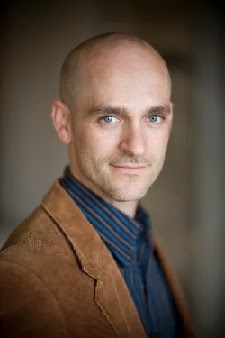
Ralph Pennel, like many Somerville residents I know, has many creative outlets. He brings his creative flair to the classroom at Bunker Hill Community College; he is the fiction editor of a well-regarded online publication the Midway Journal and he is a published poet and fiction writer. I recently spoke to Pennel on my Somerville Public TV show Poet to Poet: Writer to Writer.

Ralph Pennel
Doug Holder: Since we last sat down for an interview a couple of years ago, a lot has changed for you. You are now a lecturer at Bunker Hill Community College. How has the teaching experience been for you, and do the students differ in any way from the Midwest where you taught for many years?
Ralph Pennel: My experience—teaching World Literature at Bunker Hill—has been great. I am always surprised by the experience the students bring to the classroom. The discussions are always lively—it is obvious that they are working towards something.
Many are working to transfer to a four year school. And their efforts to make that happen in terms of how they prepare themselves for class are apparent. A larger percentage of my students in the Boston, than say the Midwest, come prepared and have fewer excuses. At least in the classes I teach they are more than willing to participate.
DH: You told me that the Midway Journal, which you are the fiction editor for, has been redesigned. How does it differ from the past?
RP: Anything on the internet has got a built destruct button in terms of looks and functionality. When we first went live in the fall of 2007 our site was very indicative of sites that were going up at that time. And if course if you don’t make any changes to your site it looks outdated. So when we redesigned the site we cleared up some of the functionality issues. There were certain problems with navigating the site. The new site makes things easier. The site just looks newer. The person we hired really had her thumb on what was current. Assuming we are around the next two or three years, we will do it again. We are in the process of growing. We brought in new fiction editors. We have an intern to help with Facebook and Twitter.
DH: Your new poetry manuscript is titled: “The World is Less Perfect for Dying In.” Tell us a bit about this.
RP: The manuscript is broken into two sections. The themes are loss, rebirth, literally and figuratively. I am grateful to the Cervena Barva Press for agreeing to publish it.
DH: Has your Midwestern sensibility been jaded by your exposure to the Northeast?
RP: Sometimes I forget that I really have been in the East Coast for four and a half years, and that I lived in the Midwest for most of my life. I don’t know if I truly fit in in the Midwest. I tried to be a little more straightforward than folks usually are there—so that brought conflicts. But still people easily identify me as a Midwesterner. Everything in the Midwest is planned on a grid—so it is not as conducive to the out-of-the box creative thinking. When you live on a grid you don’t really need to know how to get places. In New England it is more random type of lifestyle.
DH: I read a poem of yours “Nighthawks” Why do think so many poets are influenced by the paintings of Edward Hopper?
RP: I think it is the paradox that is reflected in his work. He uses bright colors often. The thing he does is set his characters in isolation– the isolation of the American image. I think that is an interesting idea for poets. There is also an ironic aspect to Nighthawks—it has an everyman level to it. It is heartland America—with failed expectations.
DH: I find in your recent work a premonition of death, and the pull of gravity. Dark stuff—are you a brooding bard?
RP: I take things hard—I am a poet after all (Smiles). I am emotional. No one is interested in poems where things go well. There is always hope in my work though—after all there is always birth and renewal.
“Planning Our Departure” by Ralph Pennel
Leaving nothing to chance, we start the day
by sharing our only surviving dreams.Mine is simple. The two of us driving nowhere
with little regard for the drive.
In yours, we are rowing. Taking our time.
Taking turns at the oars.
We make nothing more of them than that,
that we have shared them.
You roll away from me, hand dropping
against the box spring,
as if to usher this bed into motion, into
one last feat of greatness though nothing on it stirs.
While we lie here, storm clouds
settle in above us,
rain gathers in their sagging bellies, felled cotton seed
invades every grassless patch of ground below.
I half expect to find this bed covered too,
mistake loose down against my pillow
for some ambitious seed that made it through
the screen beside this bed, seeking some higher,
safer place to land, who knows what falling is,
how it ends where no light reaches and never has.
Not even in the highest noonday sun when
the shadows are but charcoal blemishes no bigger than a sigh.
So much goes unsaid between us now.
The day passes us by slowly, drifts over
the trenches where we lay, the hours ahead
still unfulfilled except by all we cannot manage
the strength to save, by the rain, cold and hard,
falling from the sky to the earth where we wait.
We insist on waging our losses against an hour more
of sleep, against facing our certain departure from this room,
or from any room just like this where we may have landed
seeking shelter from all we can’t possibly begin to begin.
From the masspoetry.org website

















Reader Comments